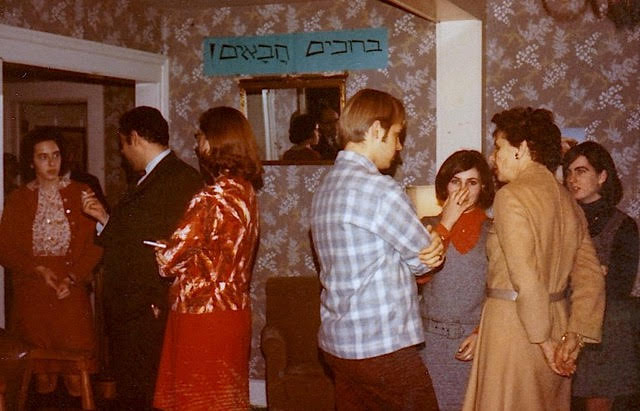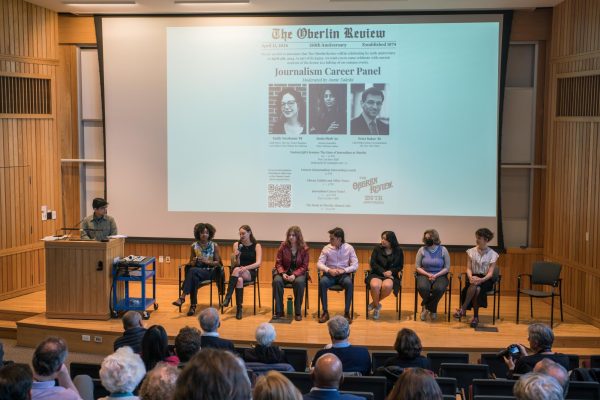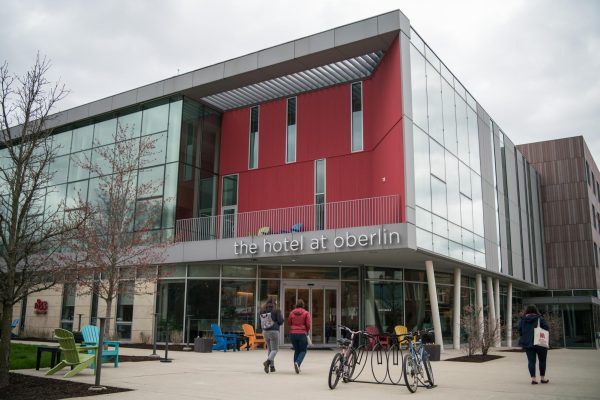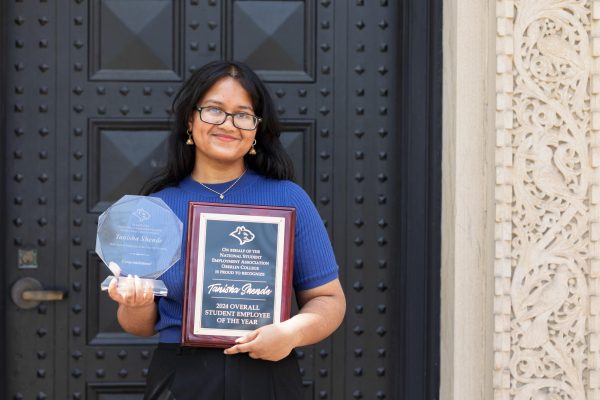Jewish Studies Department Commemorates 50 Years at Oberlin
The Jewish Studies department is celebrating its 50th anniversary at the College this week. The celebration will feature events Sunday evening and all day Monday.
The commemorative events begin at 5 p.m. Sunday with a talk in StudiOC titled “Jewish Studies at Oberlin: Alumni Perspectives” featuring David Eaton, OC ’71, Amalia Haas, OC ’91, and Kendell Pinkney, OC ’09.
As his project for the College’s first-ever Winter Term in 1969, Eaton created Hebrew Heritage House — now Johnson House — to study Hebrew for a month alongside fellow students in a communal living environment. This initiative directly led to the College’s establishment of the Judaic and Near Eastern Studies department, now called Jewish Studies.
As Chair of Jewish Studies and Associate Professor of Jewish Studies and Religion Shari Rabin puts it, the Jewish Studies department came about as a result of student activism.
“There were Jewish students at Oberlin throughout the 20th century, and at various points there were different Jewish student groups on campus,” Rabin said. “It was those students sort of gathering together to create community and to study Hebrew who really started the push for there to be a Jewish Studies faculty on campus. And so they really took initiative and advocated with the College and with outside Jewish organizations to get together funding to hire the first Jewish Studies professor, who started in 1971.”
College fourth-year Catherine Horowitz learned about the House’s origins through a Jewish Studies project researching the history of the department.
“I actually interviewed the guy who started Hebrew House,” Horowitz said. “So that was pretty cool. But basically, there weren’t a lot, but there were some Jewish organizations at Oberlin before 1969. … But none of them really lasted that long.”
The research project will take the form of an exhibit in Mudd Center titled, “‘To Find it Again’: The Quest for Jewish Life and Jewish Studies at Oberlin College.” There will be an open house Monday from 1–3 p.m. during which visitors can explore the exhibit.
According to Rabin, some of the researchers will act as exhibit docents during the open house.
“One of the things that the student researchers really noticed in looking into the program’s history is that it was not at all obvious that the program would make it 50 years,” Rabin said. “There were various ups and downs over its history. But what you see consistently is the determination of Jewish students and faculty and staff, and also community members, to make sure that Jewish Studies had a presence.”
When the College hired its first Judaic and Near Eastern Studies faculty member 51 years ago, the program looked significantly different. According to Horowitz, the department was called Judaic and Near Eastern Studies because the founding faculty member specialized in Middle Eastern Studies and the Hebrew language, and this specialty determined the focus of the program under his direction until his departure about 10 years later.
“So, they changed the name in the ’90s to Jewish Studies,” Horowitz said. “But when that happened they shifted it more to like a literature history, like a cultural sort of thing, as opposed to just something that was based on Hebrew.”
Cultural and literary history are integral aspects of this week’s commemorative events. College fourth-year Theo Kanter will be performing on Sunday with his band Shtick-and-Poke — a band that came about as a result of tradition within the Jewish Studies department.
“Actually there was a lecture that happened last year by the Jewish Studies and the German department together about the history of klezmer music,” Kanter said. “A bunch of us in the audience just got talking with one another because the professor had gone here — it was Gabriel Cooper [OC ’04], he teaches German. He had … made a klezmer band while he was here.”
Of his own band now, Kanter said, “We’ve had people come and people go. So it’s a nice, big family.”





